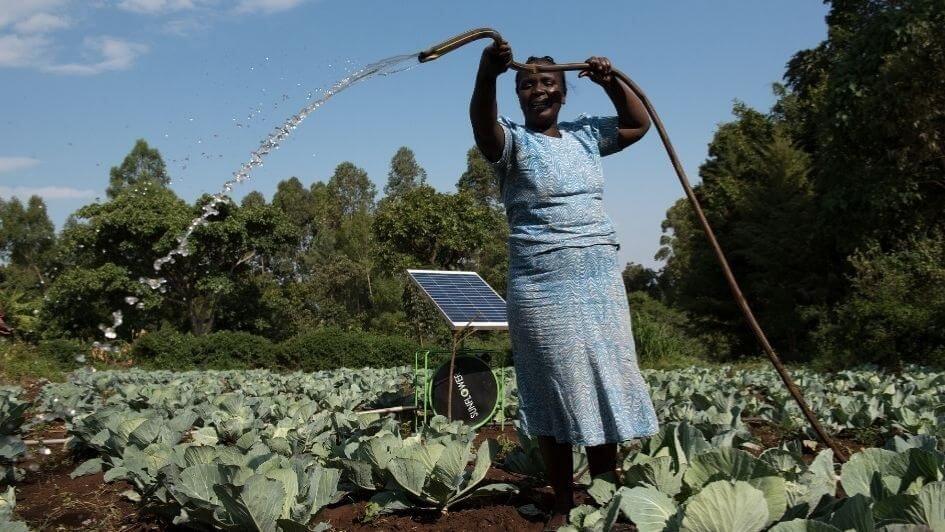What does it mean to have energy equity?
Energy equity means that the farmer in rural Uganda doesn’t have to worry about reduced harvest yields, food spoilage, or a loss in revenues. It means residents of nearby villages don’t have to walk long distances to process their maize or worry about the uncertainties of climate change on their food supply. Energy equity means improved food security for rural populations and better livelihoods for local farmers and entrepreneurs.
Africa accounts for 60% of the world’s uncultivated arable land and has among the lowest crop yields of any region globally. Further, less than 6% of farmland in sub-Saharan Africa is under irrigation, compared to 20% of the rest of the world. The potential for countries such as Uganda to be an agricultural giant is stifled to a significant degree by the persistent lack of electricity access, which negatively impacts food security, economic development, and even job creation for women and youth.
Inadequate access to energy in the agricultural sector means insufficient or no irrigation, post-harvest losses, food spoilage (due to lack of cold storage on the farm and en route the market for instance), limited energy for agro-processing (for example; solar-powered milling, oil seed pressing, solar dryers, and threshers), and overall, reduced revenue from farm yields. Creating awareness of the opportunities that these energy solutions offer to the agri-food systems helps inform governments about the required policy support to stimulate adoption of the technologies and growth of the productive use of the renewable energy industry. Further, it guides investors and development partners on the right nodes of the agriculture and energy nexus to fund, for maximum impact, while empowering agrifood system actors including farmers to make informed energy choice decisions for their various enterprises.
Power for All, through its Powering Agriculture campaign, is working with a large coalition of stakeholders in Uganda across the energy and agricultural sectors to promote the use of decentralized renewable energy solutions to spur agricultural production and productivity. Together with almost 80 multi-sector coalition members, Power for all launched a national collaboration platform, in which members are committed to working on overcoming barriers to electrification in the agricultural sector. The coalition has had such an impact, that we saw the integration of DRE into the list of strategic transformative recommendations presented at Uganda’s National UN Food Systems Summit. Further, the commissioner at Uganda’s Department of Renewable Energy in the Ministry of Energy has invited Power for All to be a part of the Ministry’s steering committee on DRE to work on a 5-year strategy, presenting a prime opportunity to influence policy, and insert productive use of energy into the Ministry of Energy where it didn’t exist before. Power for All is also creating new data analysis to better quantify the opportunity for DRE and educating the media.
Our Powering Agriculture campaign promotes energy equity by uniting stakeholders to advocate for decentralized renewable energy solutions in the agricultural sector, promote productive use of energy, and protect the livelihoods of rural farmers. The campaign currently has almost 80 coalition members globally. Due to Power for All’s leadership, organizations across sectors are now more informed, aligned, and committed to the role of DRE in agricultural production than ever before.
